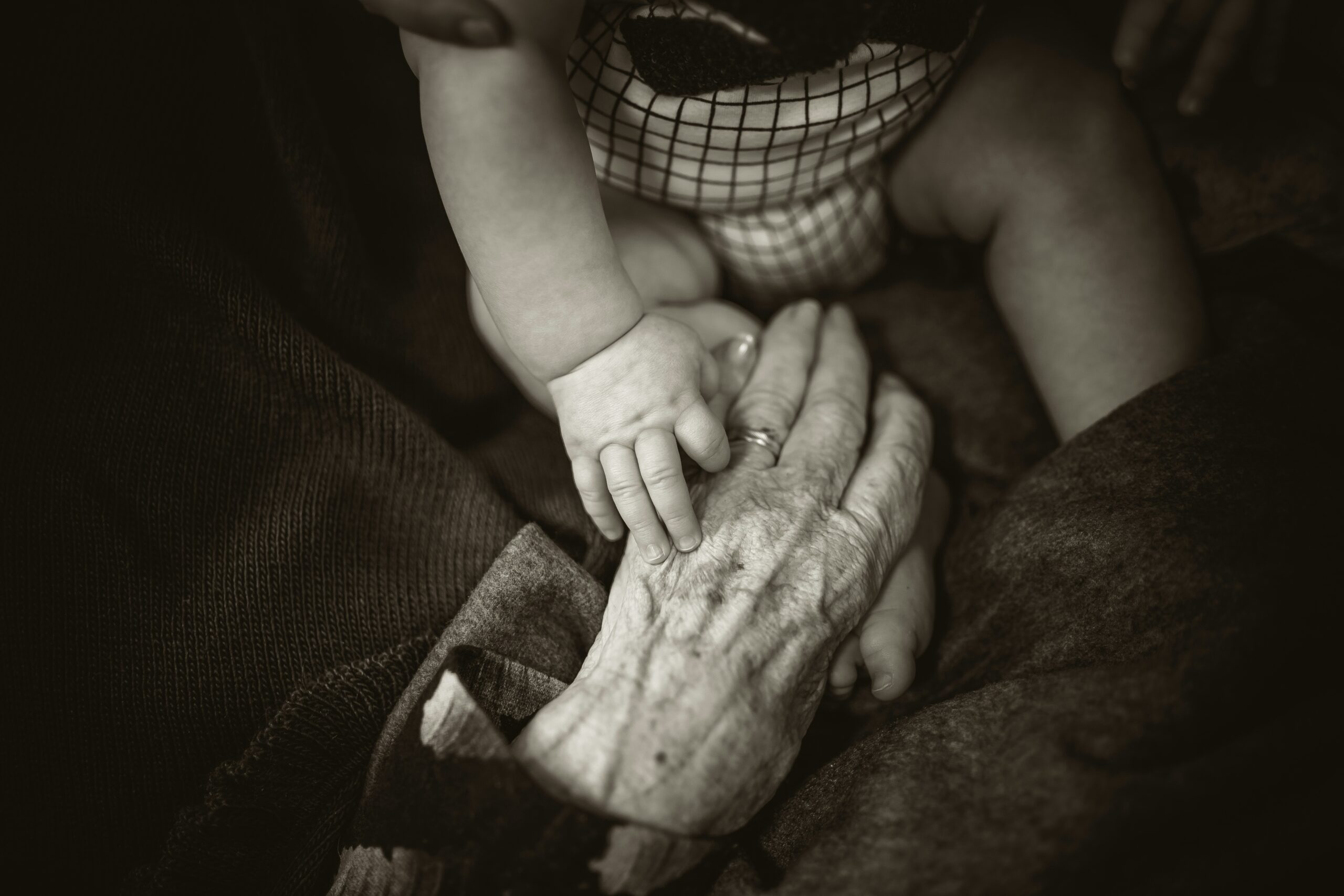
Breaking the Cycle: Generational Trauma in the Bible and the Power of Therapy
Generational trauma is a term that’s become more familiar in recent years, yet its effects have rippled quietly through families and cultures for centuries. At its core, generational trauma refers to the emotional wounds, coping mechanisms, and patterns of behavior that are passed down from one generation to the next, often unconsciously. It shows up in the way families communicate (or don’t), handle stress, express emotion, and even how they view themselves and others.
While modern psychology has given us the language and tools to understand and heal from generational trauma, the concept itself is far from new. In fact, the Bible written thousands of years ago, holds numerous examples of family dysfunction, sin patterns, and consequences that echo through generations. As we stand today, how can we ensure our own traumas are not passed down to our children and their children? How can we break the cycle?
Generational Trauma in the Bible
While the Bible doesn’t explicitly use the modern psychological term “trauma,” its stories are filled with real human pain, broken relationships, and destructive family patterns that mirror what we now recognize as generational trauma. These patterns of sin, silence, favoritism, and unresolved conflict often repeat themselves across multiple generations, showing how deeply wounds can run within the family tree. Scripture doesn’t gloss over these issues; instead, it presents them with raw honesty, offering us a way to understand how spiritual and emotional legacies are inherited and, at times, healed.
Abraham, Isaac, and Jacob: A Pattern of Deceit and Favoritism
Abraham, Isaac, and Jacob are central figures in the Bible whose faith in God we can learn a lot from, but their lives also reveal deep family dysfunction. Abraham, fearing for his safety, twice lied about his wife Sarah, claiming she was his sister (Genesis 12:10–20; 20:1–18). His son Isaac repeated this exact deception with his wife Rebekah (Genesis 26:7), suggesting a learned or internalized behavior rather than an isolated decision.
Then came Jacob, whose name literally means “deceiver” in the Hebrew language. With the help of his mother Rebekah, Jacob tricked his blind father Isaac into giving him the blessing intended for his older brother Esau (Genesis 27). Deception became a norm in the family narrative, and favoritism was just as pervasive: Isaac favored Esau, while Rebekah favored Jacob, and later Jacob would repeat this mistake by showing excessive preference for Joseph, inciting hatred among his other sons.
These recurring patterns didn’t arise in a vacuum; they were modeled and passed down. The consequences were devastating: broken trust, sibling rivalry, estrangement, and cycles of manipulation. What began as personal survival tactics became a generational curse, demonstrating how family sins and traumas echo through the generations unless confronted and transformed.
King David and His Children: The Legacy of Silence and Inaction
King David is often celebrated for his devotion to God, but his role as a father reveals a troubling pattern of emotional detachment and moral inaction that contributed to deep trauma within his household. One of the most disturbing events in David’s family is the rape of his daughter Tamar by her half-brother Amnon (2 Samuel 13). After the assault, David became “very angry,” but he took no action to bring justice or healing. His silence left Tamar devastated and isolated and she lived “a desolate woman” in her brother Absalom’s house, a powerful image of unaddressed trauma and abandonment.
David’s failure to respond as a father and a king had severe consequences. Absalom, enraged by his father’s passivity and protective of his sister, took justice into his own hands and murdered Amnon. This act set off a series of tragic events: Absalom fled, later returned with resentment still burning, and eventually led a rebellion against David leading to further loss, division, and heartbreak.
David’s silence didn’t just reflect personal weakness, it showed avoidance to his children. By refusing to confront sin and pain within his family, he perpetuated a legacy of emotional neglect and unhealed wounds. His story illustrates how silence in the face of trauma can be just as harmful as the initial wrongdoing, leaving a lasting imprint on the next generation.
The Role of Therapy in Breaking the Cycle
Recognizing generational trauma is just the beginning of the healing process. It can be incredibly challenging to break out of cycles of hurt and dysfunction that have been passed down through generations. However, healing is possible, and therapy provides a structured, safe space to process pain, make sense of trauma, and create new, healthier patterns. Through intentional work with a skilled therapist, individuals can break the shackles of inherited emotional wounds and build a brighter, healthier future for themselves and their families.
Understanding the Root Causes
One of the primary roles of therapy is helping individuals uncover and understand the deep-seated roots of their emotional struggles. Often, our responses to life’s challenges are influenced not just by our own experiences, but also by the patterns and behaviors modeled by our parents, grandparents, or even earlier generations. Therapy offers a safe space to explore these family dynamics and the emotional inheritance we’ve received. This process of exploration is not about blaming past generations, but rather about understanding the unconscious ways in which certain behaviors and mindsets have been passed down.
Questions like, Why do I avoid conflict? or Why does emotional intimacy feel unsafe? often hold clues to unresolved family trauma. For example, if a parent or grandparent struggled with emotional expression or had a history of traumatic events, these unresolved issues could affect how subsequent generations perceive and react to similar situations. By identifying these inherited patterns, therapy helps individuals gain a sense of clarity and ownership over their emotional responses, allowing them to consciously break free from unhelpful patterns.
Moreover, understanding the root causes of trauma provides individuals with a sense of empathy toward themselves and their ancestors. It allows for a deeper understanding of why certain behaviors were survival mechanisms in the past, even though they may no longer be helpful today. This process of self-awareness is the first step in dismantling the cycle of generational trauma.
Developing Healthier Coping Mechanisms
Previous generations in your family may have resorted to coping mechanisms like emotional suppression, avoidance, or even aggression due to societal pressures and lack of resources. This can perpetuate a cycle of pain and dysfunction to today and future generations. For example, a child raised in a home where emotional expression was suppressed may grow into an adult who struggles to express their feelings, leading to loneliness, anxiety, and strained relationships.
Therapy provides individuals with the tools they need to replace these outdated coping mechanisms with healthier, more adaptive strategies. This could involve learning how to set healthy boundaries, express emotions in a safe and constructive way, or manage anxiety through mindfulness techniques. Therapy also helps individuals develop emotional resilience, teaching them how to face challenges with more self-compassion and balance.
Rewriting the Family Narrative
Just as generational trauma can be passed down, so can healing. In therapy, individuals often come to understand that they have the power to rewrite their family’s story. This process is not about erasing the past but about facing it—acknowledging the pain, validating the experiences, and making conscious decisions to respond differently. When individuals commit to this process of healing, they become part of a powerful and intentional shift that can affect not just their own lives but future generations as well.
Rewriting the family narrative involves both addressing unresolved emotional pain and making new, healthier choices. For example, a person might realize that their response to conflict is rooted in fear of rejection, stemming from their parent’s inability to navigate difficult conversations. Through therapy, they can learn how to communicate openly and honestly, breaking the cycle of avoidance and fostering healthier relationships with their children. Over time, this kind of healing can transform the entire family system, leading to stronger bonds and healthier emotional dynamics.
Therapy provides the support needed to navigate this journey of transformation. It gives individuals a framework for identifying the unhelpful patterns and offers strategies for replacing them with new, life-giving behaviors. By taking ownership of their healing, individuals can break free from past dysfunctions, creating a new narrative for themselves and their families—one marked by grace, authenticity, and emotional freedom.
With Christ by Your Side, You Can Be the One Who Changes Everything
Generational trauma may explain how certain patterns got started, but it doesn’t have to define your future. Whether you relate to Jacob’s deception, David’s avoidance, or Tamar’s voiceless suffering, your story can take a different path.
Getting support through therapy isn’t a sign of weakness; it’s a declaration that the pain stops with you. That your children will grow up freer. That your relationships will be more honest, tender, and resilient. That healing, though not easy, is possible. Healing begins with a humble confession that “I cannot do this alone.” Since Jesus defeated sin on the cross, now we can experience freedom and victory in this area as well.
The Bible shows us that human brokenness is nothing new. But it also shows us a God who specializes in redemption. And when we add the gift of therapy to that equation, we gain tools to partner with God in healing the wounds of the past—for ourselves and for generations to come. The devil loves to utilize our past scars and traumas to keep suffering and tries to keep us there as long as possible. You can declare, “no more!” and start seeking help today!
The compassionate team of licensed therapists at Fully Health Clinic, sponsored by Oak Health Foundation, is here to walk with you whether you’re supporting a friend or facing your own mental health challenges. Contact us here or at +1 877-553-8559 to schedule a confidential appointment and take the first step toward healing and hope.
If you found our resources useful, please consider donating to Oak Health Foundation, which is a 501(3)c nonprofit dedicated to providing resources regarding holistic mental healthcare and subsidized treatment for those in nee




